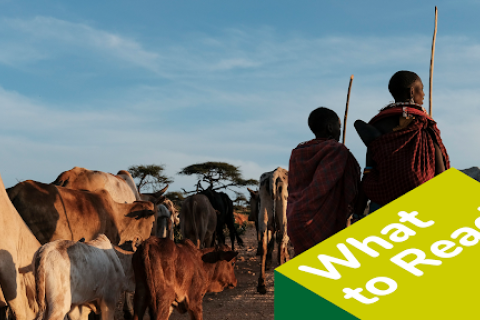Are pastoralists and their livestock to blame for climate change?
This What to Read digest examines livestock keeping in pastoral systems and features recent research that reviews the relationship between pastoral livelihoods and global climate change.


